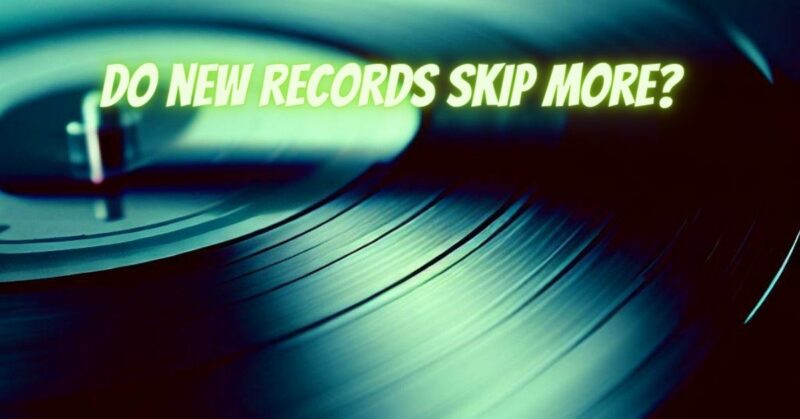The resurgence of vinyl records in recent years has brought immense joy to audiophiles and music enthusiasts alike. However, as vinyl has made its triumphant return, there has been speculation and debate about whether new records are more prone to skipping. In this article, we will explore the factors that may lead to skipping on both new and vintage vinyl records and debunk the myth that new records inherently skip more.
Understanding Vinyl Record Skipping
Vinyl records are sensitive analog mediums that require precise interaction between the stylus (or needle) and the record’s grooves to produce sound. Skipping occurs when this interaction is disrupted, causing the stylus to skip across the surface, skipping over grooves and causing audio interruptions.
Common Factors That Contribute to Skipping
Several factors can contribute to record skipping:
- Stylus Condition: The condition of the stylus is critical. A worn or damaged stylus can struggle to maintain proper contact with the grooves, increasing the likelihood of skipping.
- Turntable Setup: Incorrect turntable setup, including tracking force, anti-skate, and tonearm alignment, can affect the tracking capabilities of the stylus and lead to skipping.
- Turntable Quality: The quality and condition of the turntable itself play a significant role. Higher-end turntables with better tonearms and more advanced tracking mechanisms tend to have fewer skipping issues.
- Record Condition: The condition of the vinyl record itself is crucial. Scratches, gouges, or warps can create obstacles that the stylus cannot navigate, resulting in skips.
- Environmental Factors: External vibrations, such as footsteps or speakers’ vibrations, can disrupt playback and lead to skipping.
- Dust and Debris: Dust, dirt, or debris on the record’s surface or within the grooves can cause skips by interfering with the stylus’s path.
- Warping: Warped records may not sit flat on the turntable platter, causing the stylus to skip as it navigates uneven grooves.
Are New Records More Prone to Skipping?
The idea that new records are more prone to skipping is a misconception. Skipping is not inherently related to the age of a record but rather to the factors mentioned above, many of which are under the listener’s control. Here’s why new records should not be unfairly blamed:
- Quality Control: New records are typically produced with advanced quality control processes. While there may be occasional manufacturing defects, they are not the norm, and most new records are produced to high standards.
- Handling: New records are less likely to have been mishandled or improperly stored, which can lead to physical damage that causes skipping.
- Turntable Compatibility: New records are made to be compatible with modern turntables, reducing the likelihood of playback issues.
- Consumer Demand: Given the resurgence of vinyl, record labels are keen to provide high-quality pressings that satisfy consumer demand. Skipping-prone records would harm their reputation.
Preventing Skipping on All Records
To prevent skipping on both new and vintage vinyl records, consider the following tips:
- Proper Turntable Setup: Ensure your turntable is correctly set up, including tracking force, anti-skate, and tonearm alignment.
- Stylus Maintenance: Regularly inspect and maintain your stylus. Replace it when signs of wear or damage are visible.
- Cleanliness: Keep records and the stylus clean to prevent dust and debris buildup.
- Environmental Considerations: Place your turntable on a stable surface and isolate it from external vibrations.
- Handle Records Carefully: Always handle records by their edges to avoid introducing scratches or warping.
- Check Record Condition: Visually inspect records for visible damage before playing.
The idea that new records are more prone to skipping is a myth. Skipping can occur on both new and vintage records due to various factors, many of which can be addressed through proper setup, maintenance, and handling. With the right equipment, care, and attention to detail, you can enjoy your vinyl collection without the interruption of skips, regardless of whether the records are old or brand new.


